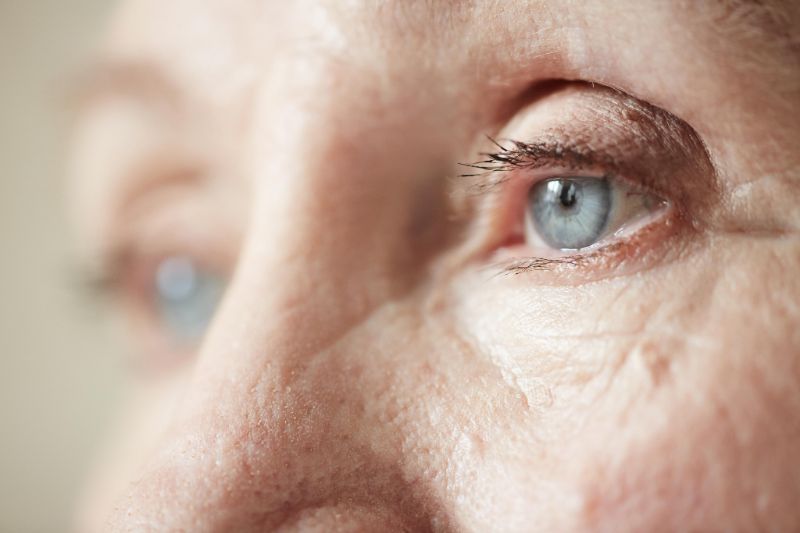
Macular degeneration is a medical condition that affects the center of the retina (macula) in the eye, which determines vision sharpness. Symptoms range from blurred or distorted vision, difficulty seeing in low light, and having a dark area in the center of your vision.
There are two main types of macular degeneration: wet and dry. Dry macular degeneration is the most common form and occurs when the light-sensitive cells in the macula start breaking down. Wet macular degeneration is less common but more severe and happens when blood vessels grow under the retina, causing blood leakage.
Early detection of macular degeneration can help minimize the vision damage this condition could cause. Although there is no cure, your doctor may prescribe a drug treatment or photodynamic therapy to slow its progression.
Early stages of macular degeneration often don’t show symptoms. Once they do, they may include the following:
Although research does not show what exactly causes macular degeneration, it can be an inherited eye disease. Here are some factors that could increase your risk for it.
A damaged macula prevents your brain from understanding and reading the images that your eyes see. At times, this damage is caused by gradual deterioration due to aging. In its early stages, central vision may appear blurry. If left untreated, it could lead to further complications like progressive vision loss.
Our specialists might ask about your medical or family history of eye diseases during your eye exam. Knowing about your lifestyle and family can help determine if you have macular degeneration.
Your ophthalmologist may perform multiple painless and quick tests, including:
Macular degeneration is a lifelong condition. However, some treatments can slow down and prevent its progression:
Medication is injected directly into the eye to stop the growth of abnormal blood vessels.
Through laser, the abnormal blood vessels in the retina are destroyed.
A light-sensitive medication is injected and then activated with a laser to destroy the abnormal blood vessels in the retina.
Zinc, vitamin C, vitamin E, and beta-carotene may slow down the progression of macular degeneration.
EyesNY offers treatment to help patients dealing with macular degeneration. Our specialized team of ophthalmologists is ready to assess your needs and give you the high-quality vision care you deserve.
We work with cutting-edge technology to identify the root cause of your condition and create personalized treatment plans. Our caring staff is ready to welcome you and meet your ocular health and vision needs. We offer comprehensive eye care services, including treatment for macular degeneration and other diseases that affect the retina.
If you’d like a consultation or more information, contact us, request an appointment online, or visit our clinics. We have multiple locations around New York, including Malta, Clifton Park, Troy, Saratoga Springs, and Queensbury.
Malta
658 Malta Ave., Ste 101
Malta, NY 12020
Phone: (518) 580-0553
Saratoga Springs
414 Maple Ave Ste 200
Saratoga Springs, NY 12866
Phone: (518) 580-0553
Clifton Park
1712 U.S. 9
Clifton Park, NY 12065
Phone: (518) 580-0553
Queensbury
535 Bay Road
Queensbury, NY 12804
Phone: (518) 580-0553
Troy
2200 Burdett Street Ste 206
Troy, NY 12180
Phone: (518) 580-0553
